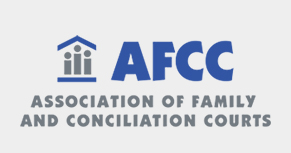By Michael Altig
.jpg)
There are lots of reasons why people get divorced or separate. Disagreements about
financial priorities and parenting are pretty high on that list. The seeds of relationship conflict
are sown, take root, and spread out like an invasive root system just under the surface of one’s
conscious life. Sometimes that planting happens from childhood experiences and development.
The challenges and intrusions of life certainly work against a relationship. We can all agree that
people never leave a relationship because they’re having too much fun and they need to bring an
end to all that silliness. Divorce and separation always have some measure of grief and loss.
How people respond to the many layers of loss, injury, and possibly trauma will determine what
happens with their children for years to come. One can never completely leave a relationship
when there are children also involved. The continual demands of parenting require people to
communicate with one another despite the reasons they couldn’t before.
It is not uncommon for a separation to happen in what might be considered an unequal or
conflicting process. One partner may have accomplished the emotional side of separation while
the other partner is still experiencing the pain of the loss or internal conflicts that play out in their
world (family dynamic) for whatever reason. That is essentially what helps drive conflict after
the separation. Parents may have separated their physical and material facets of their life.
However, at least one, if not both parents are still carrying something internally that fuels the
conflict beyond the bonds of the relationship. That is why supporting the psychological
adjustment for the adults and, yes the children, is so essential. It’s important to address the
personal patterns that give rise to the ordeal in the co-parenting relationship so they don’t repeat
it continually, or another different and future relationship that has yet to materialize. This is true
for both parents and children, as children too often become carriers of their parent’s shadow.
Divorce adjustment, sometimes referred to as “divorce recovery” is essentially the
experience of turning what was once a single family with all of its joys, challenges, chaos, and
routines into two different but functioning families. Parents must turn one of the more intimate
of all human experience into a relationship that looks more like a business partnership. Such a
transition, and even transformation, is difficult even with an “amicable” divorce and separation.
The demands of co-parenting just seem to be at risk to continue under a pattern of the same
marital/relationship argument a couple was having two, four, or even ten years ago. Some co-
parenting relationships need the support of a person, or a guide (in the form of a counselor,
coach, or parenting coordinator depending on the actual needs), who understands the full
spectrum of post-divorce life and its many challenges. The most reliable predictor of how well
children will adjust to the new kind of family after divorce and separation is the degree of
conflict between the parents. When parents quell their conflict, kids win. And that process starts
from within.





